At its April 13 meeting, Council will decide whether to purchase 21 acres of land intended for affordable housing using $1.6 million generated from the December sale of city-owned land acquired through urban renewal policies.


At its April 13 meeting, Council will decide whether to purchase 21 acres of land intended for affordable housing using $1.6 million generated from the December sale of city-owned land acquired through urban renewal policies.

After two months of community pleas to defund the police, Asheville City Council will hear even more comment on the city’s spending at a public hearing for the fiscal year 2020-21 budget on Tuesday, July 28. Members of the public who wish to speak at the meeting must now sign up in advance.
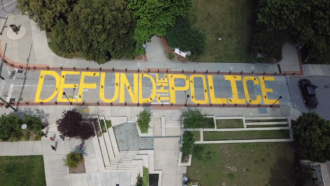
Asheville City Council approved interim budget appropriations for July — including over $2.4 million to the Asheville Police Department — as commenters flooded the phone lines at the June 23 virtual meeting to demand that city leadership “defund the police.”
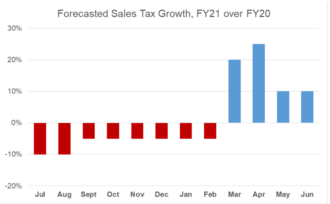
The total fiscal 2020-2021 city budget proposal stands at $184.6 million, a 3% decrease from last year’s total of $190.3 million, and will continue funding for existing services while limiting new programs, service enhancements and initiatives. The property tax rate would remain the same under the proposal, and no fee increases are recommended.
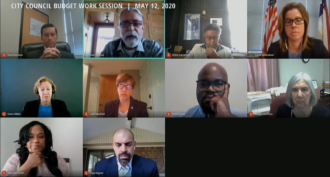
Debra Campbell, Asheville’s city manager, said she was recommending no new spending for projects that Council had previously explored, such as renewable energy on city buildings. All departments have also been asked to cut their budgets as much as possible, “with a focus on minimizing operational impacts.”
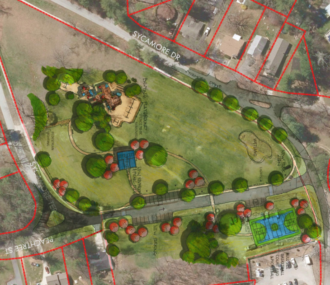
Over the 30-day period that began Feb. 27 and runs through March 26, the city and county are planning to issue a total of nearly $233 million in debt. With so much funding set to flow into local coffers, Xpress looked at what goes into a local government credit ratings and their influence on money management.
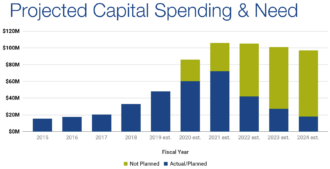
City Chief Financial Officer Barbara Whitehorn proposed that Asheville institute a program of regularly issued general obligation bonds to support capital improvement projects, while Council member Julie Mayfield discussed a property tax increase to boost Asheville’s operating budget.

Taken together, the adjustments on the docket would generate nearly $1 million in new annual revenue for water operations and capital improvements. In a staff report issued before the meeting, city CFO Barbara Whitehorn estimated the total annual impact of the changes as $6.60 per household.

At a budget work session on March 26, city CFO Barbara Whitehorn reported that Asheville can expect to receive $2.5 million in property and sales taxes from the health system in fiscal year 2019-20 — only half of the $5 million initially estimated by the Buncombe County tax office — then $5 million instead of $8 million for every year to follow.

Asheville City Council will be asked to add its piece of a $39.7 million redevelopment puzzle on Tuesday evening. The 2016 General Obligation Housing Bond will provide $1.82 million, while $1.38 million will come from the city’s general fund and $1 million will be spent from the Affordable Housing Capital Improvement Program.
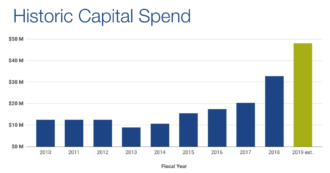
City Manager Debra Campbell called the Feb. 12 capital budget briefing “food for thought” as she encouraged Council members to focus and prioritize their objectives. “This is why we’re presenting this information,” she said. “We’ve got some tough decisions that we need to make over the next several years.”
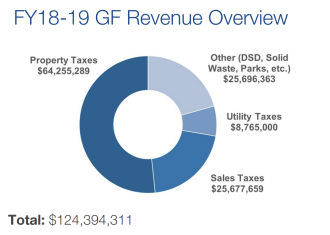
Beginning Aug. 28 and continuing through Tuesday, Dec. 11, a series of monthly meetings will explain to City Council members and the public how Asheville allocates over $180 million to provide a range of services. The first session set the general context for the budget through a discussion of community demographics and major city revenue streams.

A day after students at Asheville City and Buncombe County Schools return to their studies, Asheville City Council is scheduled to brush up on its own ABCs — as well as its AAs, BBs, and CCs. The consent agenda for Council’s upcoming regular meeting on Tuesday, Aug. 28, at 5 p.m. in council Chambers exhausts the standard alphabet, forcing three entries to take on double letters in a collection of 29 items.
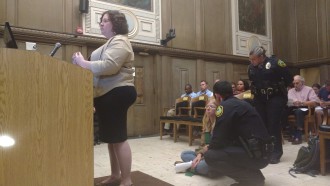
No additional changes made their way into this year’s budget as Council decided to adopt the ordinance in a 4-3 vote. Mayor Esther Manheimer, Vice-Mayor Gwen Wisler, and Council members Vijay Kapoor and Julie Mayfield all voted in support of the budget. Members Brian Haynes, Sheneika Smith and Keith Young voted against the plan; all three had shown hesitation about a police funding increase during previous work sessions.

On Tuesday, June 19, Council will put the result of its planning process to the test as its members vote to adopt the proposed budget. The document must account for $180,388,554 in spending, enough to fund the current work of over 1,200 employees and invest millions in the city’s future.
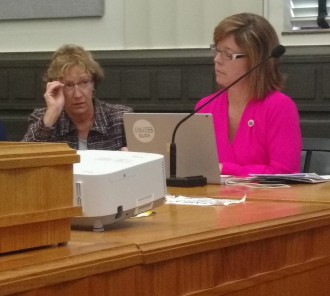
In a move estimated to yield an additional $800,000 of annual revenue, Council unanimously decided to provide free parking at city parking decks only for vehicles that exit within one hour.

Asheville City Council will pull a doubleheader on Tuesday, April 24, as it grapples with how to address a projected deficit of $2.2 million for the budget for fiscal year 2018-19, which begins on July 1. The Council begins at 3 p.m. with a budget work session in the First Floor North Conference Room of […]
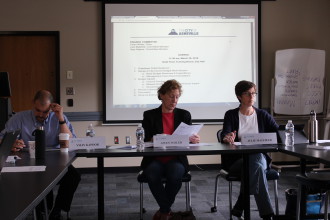
With the potential of tax revenues from the proposed acquisition of Mission Health by a for-profit company looming on the horizon, members of City Council’s Finance Committee heard several proposals on March 29 that would help balance the city’s FY 2018-19 budget.
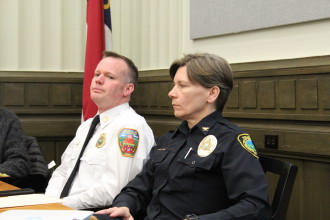
Asheville City Council pondered the effect of an average 25 percent increase in the value of property in the city, along with the impact of a $74 million bond referendum, at its first of three work sessions dedicated to drafting the city’s budget for the 2017-18 fiscal year on Tuesday, March 14.
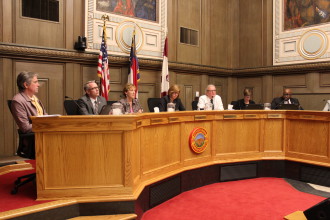
Through their elected leaders, Asheville voters will now have more say-so over development projects downtown and new hotels citywide.

Has Asheville recovered from the trauma of its municipal debt crisis, which spanned the years between 1930 and 1976? The debt had a profound impact on Asheville’s development, its cityscape and, lastingly, its appetite for municipal debt. This year’s $74 million bond referendum will put the city’s confidence to the test when it asks voters to choose whether it’s time for the city to borrow again to finance growth.